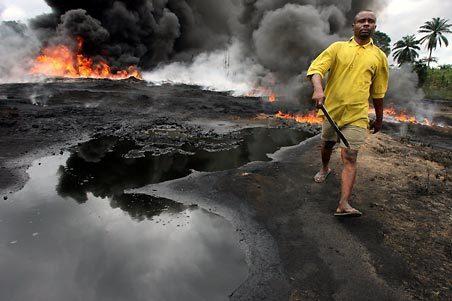
SHELL OIL THEFT

REUTERS. Royal Dutch Shell lost nearly $1 billion through theft and various disruptions to its Nigerian oil and liquefied natural gas (LNG) operations in 2013 and said that rampant oil theft is costing the country even more.
The Anglo Dutch company, updating investors on its strategy, also said that proposed Nigerian legislation had curbed investment, hindering production, while security is a daily challenge and oil theft "very material".
Nigeria is important for Shell because the African country provides almost 10 percent of the company's output and is seen as a source of future growth. In its annual report, also published on Thursday, Shell said that some risks of working in Nigeria had worsened.
The Nigerian Petroleum Industry Bill (PIB), a piece of legislation several years in the making, has not passed but it could change the terms for foreign oil companies in the country.
"There are at least three to four different versions of it and most of them have been unhelpful to supporting future investments in the country," Simon Henry, Shell's chief financial officer, said on a conference call.
PRODUCTION STYMIED
"Therefore the industry at large has taken almost no significant investment decision in that six, seven-year period. So the country's 4 millon barrel-a-day target has effectively become actual production of less than 2 (million bpd)."
Nigeria produced about 1.9 million bpd in February, according to OPEC figures.
Oil theft is often associated with criminals who tap crude from pipelines for local refining. Stolen oil also leaves the country in tankers.
"The theft is very material," Henry said. "Figures have been quoted up to a billion dollars a month being stolen from the governmet, in effect, and that figure is probably accurate."
Shell's Nigerian oil and gas output averaged 265,000 barrels of oil equivalent per day in 2013, down 100,000 bpd from 2012 and equal to about 8 percent of total supply of 3.2 million bpd.
The company, which is in the process of selling some onshore Nigerian oil blocks, still views Nigeria as a source of longer-term growth and Henry said Shell would continue to invest in gas and deepwater projects.





